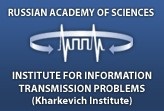Session: Local Access Metworks
Supporting a Pseudo-TDMA Access Scheme in Mesh Wireless Networks
Ilenia Tinnirello, Pierluigi Gallo
Abstract: Wireless mesh networks appear a promising solution for providing ubiquitous low-cost wireless access, but cannot rely on simple CSMA access protocols because of the critical inefficiencies that arise in topologies with hidden nodes. To overcome these limitations, some important protocol extensions based on synchronization and reservation mechanisms have been ratified. In this paper we show that an alternative approach to the standardization of new features and signaling messages for mesh networks can be the utilization of programmable nodes able to execute different MAC protocols programmed on the fly. Signaling messages are used only for disseminating the new protocol among the nodes. The scheme, that we call pseudo-TDMA, can be optimized as a function of the node density in the network. Apart from the numerical evaluations, we also run some experiments by exploiting our prototype of wireless programmable node called Wireless MAC Processor.
Dynamic Resource Allocation for MCCA-Based Streaming in Wi-Fi Mesh Networks
Evgeny Khorov, Artem Krasilov, Andrey Lyakhov, Dmitry Ostrovsky
Abstract: The IEEE 802.11s standard defines a novel deterministic channel access method called MCCA. In preliminarily reserved time intervals, MCCA allows packet transmission from the owner of the reservation to the intended receiver, while their neighbors are forbidden to access the channel. Such a protection decreases the interference from hidden stations, allowing to improve reliability of transmission between two stations, which makes MCCA a promising method to transmit real-time multimedia streams with parameterized QoS support. However, both random noise and interference from the stations out of one-hop neighborhood may cause transmission errors, increasing packet loss ratio. In this paper, we consider various mechanisms for protecting reservations from interference and propose a method to find the amount of reserved channel resources and the type of protection needed to meet QoS requirements while transmitting the data with MCCA in case of varying channel conditions.
Distributed Clock Synchronization Algorithm for Wide-Range TDMA Ad Hoc Networks
Dmitry Doronin, Denis Fakhriev
Abstract: In this paper a new distributed clock synchronization algorithm for wireless multihop ad hoc network is presented. The algorithm is based on TSF (Timing Synchronization Function) used in IEEE 802.11. We extended TSF with determination of propagation delay between neighbors. This is especially important for wide-range networks where propagation delays can be significant. The performance analysis of the protocol is carried out with a simulation model.
Joint Integrated Spectrum Handoff MANagement and Routing in CR-MANETs: An Analytical Modeling
S. Nejatian, S. K. Syed-Yusof, N. M. Abdul Latiff, V. Asadpour, N. Fisal
Abstract: The focus of this paper is on the modeling of joint Integrated Spectrum Handoff MANagement (ISHMAN) and routing in cognitive radio mobile ad hoc networks (CR-MANETs). To model the ISHMAN, we must consider three key factors: (1) channel availability and spectrum usage behaviors of the primary users (PUs); (2) the movements and the motility of the secondary users (SUs); and (3) channel quality degradation. In this paper, we propose a new model for spectrum handoff in CR-MANETs considering the above mentioned factors characterizing the united ISHMAN and routing in these networks.
Dimensioning Self-sufficient Networks of Energy Harvesting Embedded Devices
Nicola Bui, Michele Rossi
Abstract: Energy efficiency and self sustainability are among the primary objectives for networks of embedded devices, such as those of sensor networks and Internet of Things. In this paper we present a reference framework to obtain the optimal configuration parameters of networked devices with energy scavenging capabilities. Specifically, we derive an optimization method that links a simple and yet effective energy consumption model to network topology configurations and to the average energy that is harvested from the environment. This model is efficiently solved using interior point algorithms, making it possible to obtain optimal communication parameters and their feasibility regions, so as to ensure the perpetual operation of embedded communicating devices. Moreover, our framework allows for a dynamic system configuration as a function of the harvested energy income rate, thus making the considered networks flexible and self-adaptable.
Experiment Design for Parameter Estimation in Sensing Models
Vladimir V. Shakhov
Abstract: In this study, the problem of quality improvement for sensing models in wireless sensor networks is considered. A choice of sensing model strongly influences design of wireless sensor networks and performance of protocols, such as traffic aggregation, broadcasting, energy efficient routing, target or barrier coverage etc. For these reasons, it is useful to investigate the nature of sensing ability, and the manner in which it depends on the characteristics of wireless sensor networks. The author investigates the impact of experiment design on the evaluation of a sensing quality function. The goal of this work is to provide an approach for the statistically efficient estimation of sensing model parameters.



